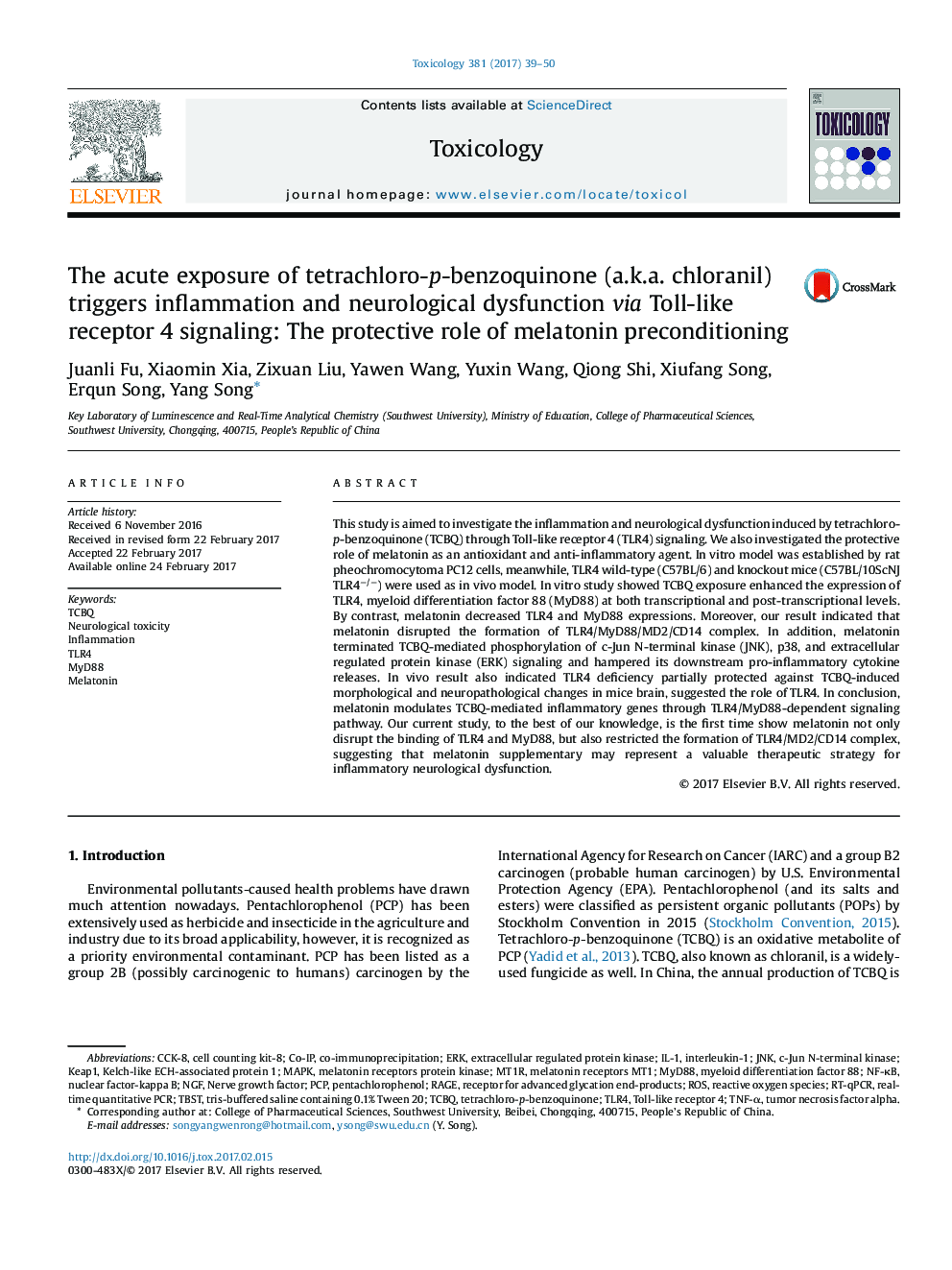| کد مقاله | کد نشریه | سال انتشار | مقاله انگلیسی | نسخه تمام متن |
|---|---|---|---|---|
| 5561957 | 1562291 | 2017 | 12 صفحه PDF | دانلود رایگان |

- TCBQ exposure enhanced the expressions of TLR4 and MyD88.
- Melatonin decreased TLR4 and MyD88 expressions induced by TCBQ.
- Melatonin disrupted the formation of TLR4/MyD88/MD2/CD14 complex.
- Melatonin terminated the phosphorylation of JNK, p38 and ERK signaling.
This study is aimed to investigate the inflammation and neurological dysfunction induced by tetrachloro-p-benzoquinone (TCBQ) through Toll-like receptor 4 (TLR4) signaling. We also investigated the protective role of melatonin as an antioxidant and anti-inflammatory agent. In vitro model was established by rat pheochromocytoma PC12 cells, meanwhile, TLR4 wild-type (C57BL/6) and knockout mice (C57BL/10ScNJ TLR4â/â) were used as in vivo model. In vitro study showed TCBQ exposure enhanced the expression of TLR4, myeloid differentiation factor 88 (MyD88) at both transcriptional and post-transcriptional levels. By contrast, melatonin decreased TLR4 and MyD88 expressions. Moreover, our result indicated that melatonin disrupted the formation of TLR4/MyD88/MD2/CD14 complex. In addition, melatonin terminated TCBQ-mediated phosphorylation of c-Jun N-terminal kinase (JNK), p38, and extracellular regulated protein kinase (ERK) signaling and hampered its downstream pro-inflammatory cytokine releases. In vivo result also indicated TLR4 deficiency partially protected against TCBQ-induced morphological and neuropathological changes in mice brain, suggested the role of TLR4. In conclusion, melatonin modulates TCBQ-mediated inflammatory genes through TLR4/MyD88-dependent signaling pathway. Our current study, to the best of our knowledge, is the first time show melatonin not only disrupt the binding of TLR4 and MyD88, but also restricted the formation of TLR4/MD2/CD14 complex, suggesting that melatonin supplementary may represent a valuable therapeutic strategy for inflammatory neurological dysfunction.
Journal: Toxicology - Volume 381, 15 April 2017, Pages 39-50